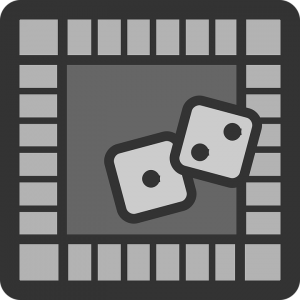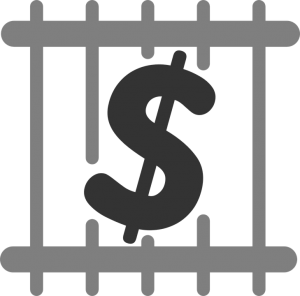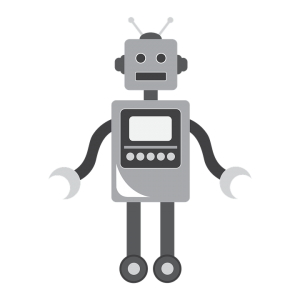
- Classic board with all the basic Monopoly rules
- Support for the screens of all sizes: phones, tablets, monitors etc.
- Automatic calculation and rent display on each card of the board if owned, otherwise – card’s price
- Equal build/demolish rule
- Limited number of houses/hotels
- Special hotel removal rule, when there are less than 4 houses to replace demolished hotel. More than 1 houses/hotel will be removed and half of the construction costs paid to the player.
Example: if player attempts to remove a hotel from 3-card colour set with all hotels on it, and the board has only 2 houses left, a total of 13 houses will be removed with only 2 houses left on a set. The board would get 3 hotels and would have 0 houses left, and the player would get 6.5 times house price in cash. Original Monopoly rules are more harsh: they require the player to demolish everything on his set, and then buy the houses back from the board at full price.
- Trade: up to 4 cards allowed to trade in one transaction for each side of 2-sided trade deal plus money on either (or both) sides. Number of transactions per turn – unlimited
- Personal player’s grids to contain players’ cards
- Last transaction amount for each player
- Highlighting the cards available for trading, mortgaging, unmortgaging, building and demolishing of houses when corresponding action is performed
- Real (statistically and physically) dice. While “rolling”, the dice cannot get the same side twice in a row, jump from top to bottom or roll “backwards” – i.e. out of the all the sides available only 3 could be next after the current one. Dice can stop rolling at different times and are completely independent from each other

- Impossible-to-cheat automatic only saves. The game is saved after the dice stopped rolling and after some other events which involve random. No free re-rolling!
- Latest event fading message on a board, as well as full logs in the Logs view
- Adjustable game speed, can be changed at any time
- Game pause while in Menu, looking at logs or statistics
- Start game screen allows to set custom salary, initial cash amount, number of house and hotel permits available, percentage of rent payable while in jail, bonus for landing on Go and Free parking
- Input text validation for save game name and players’ names
- 2-4 players supported, whether AI (5 intelligence levels) or humans, in any possible combinations (i.e. a game with all 4 bots, different intellect levels are totally fine. Such games would be very useful for learning advanced Quadropoly trading strategies)
- All Chance and Chest cards are reworked, many new categories of the events added. Player can choose Chance and Chest cards before starting the game
- Statistics about the current game, with all the relevant numbers displayed in pie charts
- Account level statistics, with details of all eligible games (games with human and 3 AIs). Account information is stored in 3 different repositories related to 3 possible game difficulty levels. No need to choose the level, it is assigned automatically according to the level of AIs selected
- Challenges and scores
- Logs and account information synchronisation with the Cloud. Full game Monopoly App log is extremely well compressed and only takes between 4 Kb and 8 Kb
- Full logs in the game with ability to filter on any string
- Build, demolish, mortgage and unmortgage during other players turn. Official game rules permit that, but to my knowledge no one has ever been able to implement it in a computer version of the game. In Quadropoly it is made possible for everyone during auctions (when it is your turn to bid) and during trade deals between you and current player
- The routine which runs on all the logs collected from players to identify patterns in behaviours which led to the AI’s defeat. This is used for Machine Learning to improve AI’s logic in future releases
Computer (AI) capabilities

- Every AI has unique personality with different set of biases to different monopoly sets. There are thousands of possible combinations (and the number is increasing with every new release) and there is a very small chance the player would ever play against the same AI personality twice. The personality, or set of biases, mimics the behaviour of real players meaning in general, the AI with higher bias towards given set would be willing to pay higher price for properties from that set
- There are no fixed prices for the properties AI would be willing to pay. Given overwhelming number of variables one must factor in to calculate the price of a given property in a given time (more on that in the blog post Property trading guide for the property trading game), games with 4 AIs could be used to get an idea for the cards prices. Those prices are applicable to any Monopoly game, including board games with people. The main factors include whether the card or set of cards would finish his set, whether AI currently needs money to build houses, whether money he gives to another player could be used to build houses, how much money each opponent has, his biases towards the sets involved, how much maximum would each card cost if sold to the player who needs it most (AI cannot see biases of other AIs and applies his own biases to estimate the price of the properties for everyone). There are many other factors as well as small portion of the price being random, so even the same AI is unlikely to give the same price twice. However, mostly to discourage players from gaming this small random portion trying to get best price possible by offering a deal 100 times over, every attempt to trade with the AI raises his annoyance level, which makes the price worse by about 2% per attempt. Annoyance goes back down with time. It also works the same way on AI-with-AI trades. As a result, the more AI tries to trade with the same opponent per turn, the less likely they are to reach an agreement
- Trading cards. AIs trade a lot. They trade exactly the same way whether their opponent is a human or an AI regardless of that AI intelligence level. However, AIs on lower difficulties have a chance to forget to propose a trade
- Developing properties. Mortgaging properties to unmortgage or build up more profitable properties. AIs on lower difficulties could forget to do it in their turn
- Estimating level of danger for their next dice roll. AI would not spend money on trades (unless the deal is too good to refuse!) or building if he has a chance to land on something nasty during his next turn
- Build up or unmortgage properties during other players turn (during auction or trade with that AI)
- General money management. They do it much better than 99% of the human players, including myself!
